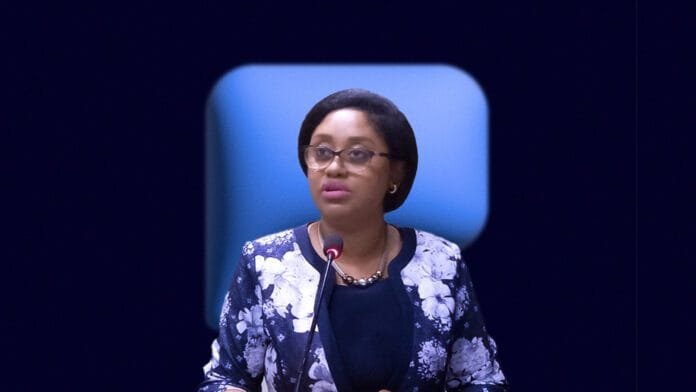- In the last three months of 2024, the country was struck by a wave of protests that culminated in the destruction of public and private infrastructure, severely affecting the social and productive fabric of our economy, resulting in a negative GDP variation of 4.9%. – Carla Louveira, Minister of Finance
In an interview with Profile Mozambique, Minister of Finance Carla Louveira analyzes the impact of the protests and climatic shocks on the national economy’s performance. The Minister highlights the emergency measures adopted by the government to mitigate the effects of the crisis and restore investor confidence.
Profile Mozambique: Given the data from the National Statistics Institute regarding the fourth quarter of 2024, what were the main factors that contributed to the negative variation of 4.9% in the GDP, and how did the violent protests, combined with climatic shocks such as the severe Tropical Storm Filipe and the El Niño phenomenon, impact the various sectors of the Mozambican economy?
Carla Louveira: In the last three months of 2024, the country was struck by a wave of violent protests that resulted in the destruction of public and private infrastructure, commercial establishments, large, medium, and small businesses, severely affecting the social and productive fabric of our economy, leading to a negative variation in the GDP of 4.9%.
Data from the National Statistics Institute for the fourth quarter of 2024 show that all sectors were affected. The secondary sector, with a negative variation of 8.9%, was hit hardest, particularly the manufacturing industry, which saw a decrease of 11%, due to the vandalization of 19 factories and industries, among other damages. The primary sector followed with a negative variation of 4.8%, notably the extractive mining industry, which saw a decrease of 10.1%. Lastly, the tertiary sector recorded a negative variation of 3.8%, induced by the hotel and restaurant sector, which saw a decline of 14.7%, followed by commerce and repair services, which decreased by 10.6% due to the destruction of 23 commercial warehouses and 1,677 establishments.
These violent actions against public and private assets negatively impacted the economic growth rate, which stood at 1.9% in 2024, compared to the 5.5% that had been projected for that year, and 5.4% observed in the same period in 2023. This trend was further aggravated by the impact of climatic shocks, particularly the severe Tropical Storm Filipe, which caused heavy rains, floods, and inundations in several cities and towns, especially in the southern region, as well as the effects of the El Niño phenomenon, which affected the productive sector in certain regions of the country.
PM: In light of the recent economic challenges, especially after the violent protests that affected several businesses, what are the main short- and medium-term measures adopted by the Government of Mozambique to stimulate the economic recovery?
CL: The Government of Mozambique is actively seeking short- and medium-term solutions to stimulate the Mozambican economy. In this context, the government invited the banking sector to be part of the solution, and they quickly responded with immediate measures that we believe will contribute to the economic recovery.
In this regard, we warmly welcome the Mozambican Association of Banks (AMB) for making financial solutions available to support the treasury and investment of micro, small, and medium enterprises. Specifically, as presented by the President of the Mozambican Association of Banks, the measure regarding the restructuring of loans granted to businesses, aimed at ensuring greater financial flexibility, is exclusively directed towards companies affected by the violent protests upon the client’s request.
This measure will allow many companies to restructure their existing loans by negotiating new terms and, where appropriate, the waiver of penalties. The second measure mentioned is the availability of a subsidized credit line totaling 10 billion meticais, aimed at financing treasury and investment, boosting economic recovery, and ensuring the sustainability of businesses, with subsidized interest rates, exempt from fees, and available until September 30, 2025.
Alongside these short-term measures, we continue to work on designing other equally structural solutions for the medium and long term, such as the Mutual Guarantee Fund, among others that are also being studied.
In this context, I must emphasize that the government is fully aware of concerns regarding the security of individuals and private and public property, and how this impacts investment and daily economic activities. We are working to maintain law and order, restore investor confidence, and improve our business environment.
PM: How are finances being managed in light of these public challenges?
CL: Obviously, it is still a situation that is not resolved. What we are currently facing is a temporary halt in some activities. However, in critical areas such as malaria, HIV, and medication supplies, we have ensured security measures.
It is this security that we are working to maintain, ensuring that normal funding resumes in these critical categories. Additionally, we are implementing a state budget restructuring program, and we are preparing a government program that will help minimize some of the situations the country is currently experiencing. Does this reflect the government’s urgent objective of achieving economic independence? Yes, that is indeed the goal.




